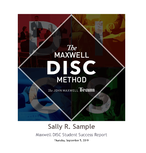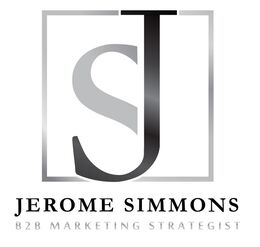 aUnderstanding the Ones that Really Matter Do you know your co-workers better than you know your own kids? Provocative question, I know. Maybe a little click-baitish, but hear me out. In the corporate world, we have all kinds of personality assessments to help us work and communicate better with our co-workers. We know each other’s strengths, weaknesses, favorites, and preferences. We know who to give details to and who can only handle high level overviews. We know who might be resistant to change and who will get with the program quickly. We process and synthesize the many insights we gain from work. We use what we learn to form deep connections with professional colleagues, team members and other employees. Wouldn’t it be great to have that same type of deep information to help you understand how to relate to your children? Can you imagine a greater peace within your family if you could understand how each person thinks and processes information? Wouldn’t it be an emotional relief to know what makes your son or daughter tick? Could you see homework being made easier if you could understand how they prefer to learn and process information? Setting Up Your Child for Success Well there is hope. You can understand your children better with the Student Success Report. The Student Success Report, best utilized for children aged 8 to 13, is an excellent tool based on the DISC personality assessment and is useful for making deeper connections with your children. The report is around 15-pages long and it has three sections:
My wife and I found the Student Success Report to be extremely helpful in understanding our two young children. Not only did it help us understand their unique personality, but it helps us understand how our own personalities amplify conflict and make our relationships with our children productive at times and unproductive at others. Since we had them complete the personality assessment, we’ve been equipped to have better relationships as a family. We’ve also been intentional in reminding one another how our children process information, why they do the things they do, and how to best help them through difficult situations. It has truly made relationships in our house feel a lot smoother. We also shared the report with their teachers at the beginning of the year. One of them said “This is terrific insight and shows how we can support him. Do you mind if I share this Student Success Report with all of his teachers? I am sure they would all want to know this information about how to best work with him this coming year.” Of course, we said “Yes!” Your Next Move I believe this report will be just as insightful for you as it was for me and my wife. As a Certified DISC Trainer with the John Maxwell Team, I have the privilege of offering this Student Success Report to you and your family. There are several packages options available to support your needs. Click here to learn more or to download a sample report. If you have any questions, feel free to schedule a time to chat with me or my wife about the report. Photo by Julia M Cameron from Pexels
0 Comments

"We can't seem to get past gatekeepers in Purchasing.” "The users love our product, but we can't get visibility with executives to up-sell or cross-sell other solutions." Are these familiar refrains from your sales teams? As a B2B marketer, you can help to solve these problems by positioning your company as a thought leader.
Why Thought Leadership? I would venture to say that many B2B sales teams have adopted a consultative selling approach. According to Hubspot, consultative selling is an approach that focuses on creating value and trust with a prospect and exploring their needs before offering a solution. The salesperson's first objective is building a relationship; their second is providing the right product. Hubspot also defines thought leadership as a content marketing tactic that can help build credibility for a company by helping it become recognized as a trusted resource in a particular industry or field. In my opinion, thought leadership campaigns and initiatives are critical to helping B2B sales teams gain trust and add value to their prospects and current customers. Being seen as experts guiding the market without a heavy sales pitch can fuel a more effective consultative selling approach. A Thought Leadership Campaign Example Within the insurance claims space, the industry knew my company for lower-level, non-strategic products. The management team wanted to change our perception in the market and gain respectability with executives at our prospective clients. I developed a perception road map with executives across the business, and that process informed my thought leadership strategy over the next five years. For example, my organization wanted to be known as a trend spotter who understands where the claims industry is going. I collaborated with Vertical, Product, Sales, and Market Research Directors and VPs to develop an original research study that covered the future of our industry. The piece was unique to the industry in that it collected and contrasted industry and consumer insights. Over 1000 people downloaded the whitepaper leading to 125 MQLs and promotional efforts generated four sales opportunities. Additionally, the study was cited in trade publications and referenced at industry events by speakers outside of our organization. Most importantly, the study was used by the sales team as a conversation starter with executives. With amplification through webinars, videos, by-line articles, and infographics, the thought leadership study helped executives become more familiar with my company. In turn, those same executives were more willing to take appointments with the sales team. Timely thought-leadership campaigns should be a tool in every B2B marketer's toolbox. I recently took the time to reflect on my 20th year in marketing, and I realized that I'd had a full and exciting career. As with most people, it's filled with ups and downs. I've realized over time how much of those challenges have come from working with different personalities - most I did not initially understand.
Perhaps you've had a similar experience. Whether you have spent 20 years with one company, two years with ten companies, or you've been an entrepreneur, you've likely encountered numerous personalities along the way. In the worst-case scenario, it was very challenging, and maybe even a hostile environment for you. I understand how it feels. In my career, I have received both good and (in hindsight) terrible advice from people trying to help me deal with difficult personalities and work environments. Here's a couple of examples: “Put Your Head Down and Just Work" – Just come in, do your job, and leave. While that may feel safe and stress-reducing at the moment, I've learned it can lead to missed opportunities for growth, leadership, and ultimately promotion. “Don’t Expect Anything but a Check" – I agree that you should absolutely get paid for the value you bring to an organization. I also agree that your self-worth should not come from where you work or what you do. However, your work or your business is where you spend 40 or more hours a week. At a minimum, it should be a place you can tolerate. At best, it's a place where you can exercise your gifts and be your full self. Here are two concepts I've implemented that have helped me continue to grow professionally and personally: Be Observant – As a Maxwell Certified DISC trainer, I now truly understand that everyone is different and the depths to which those differences and similarities exist. While everyone you encounter is unique in their personalities and giftings, most will exhibit similar personality traits. For example, every team usually has a hard-charging "just get it done" guy or gal. Then there is the one that can be counted on to lighten the mood in an intense staff meeting. Or better yet, a quiet team member that can always be relied on to come through on big projects. Think about your current and former colleagues. I bet you will find many similarities. Know Yourself – Maybe more important than recognizing the personalities around you is truly knowing your own. Understanding who you are, your strengths, how you handle pressure, and how you are wired to interact with others empowers you to no end. In terms of DISC, I am a high "S." I now better understand how my personality could potentially conflict with others but, more importantly, how I can better communicate and work with others. This knowledge has made me exponentially more effective at work and a better communicator at home. If you have never had a DISC personality assessment or can't remember the last time you had one, I encourage you to take one. The Maxwell version of the assessment provides not just readout, but an in-depth analysis of your personality type, work style, communication tips for relating to other personalities, and an application/growth guide. Click here for more info. |
AuthorB2B Marketing Strategist Jerome Simmons |


 RSS Feed
RSS Feed